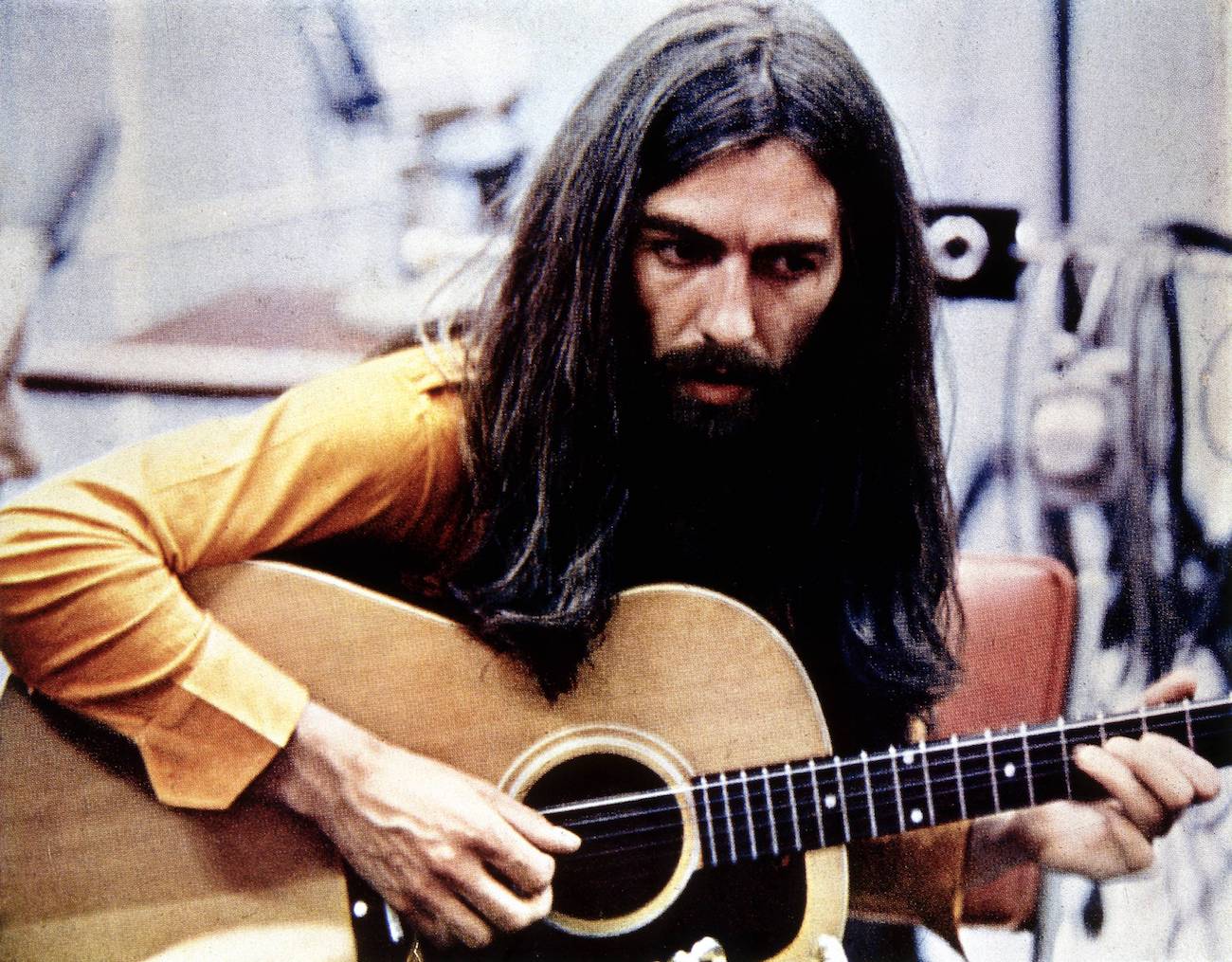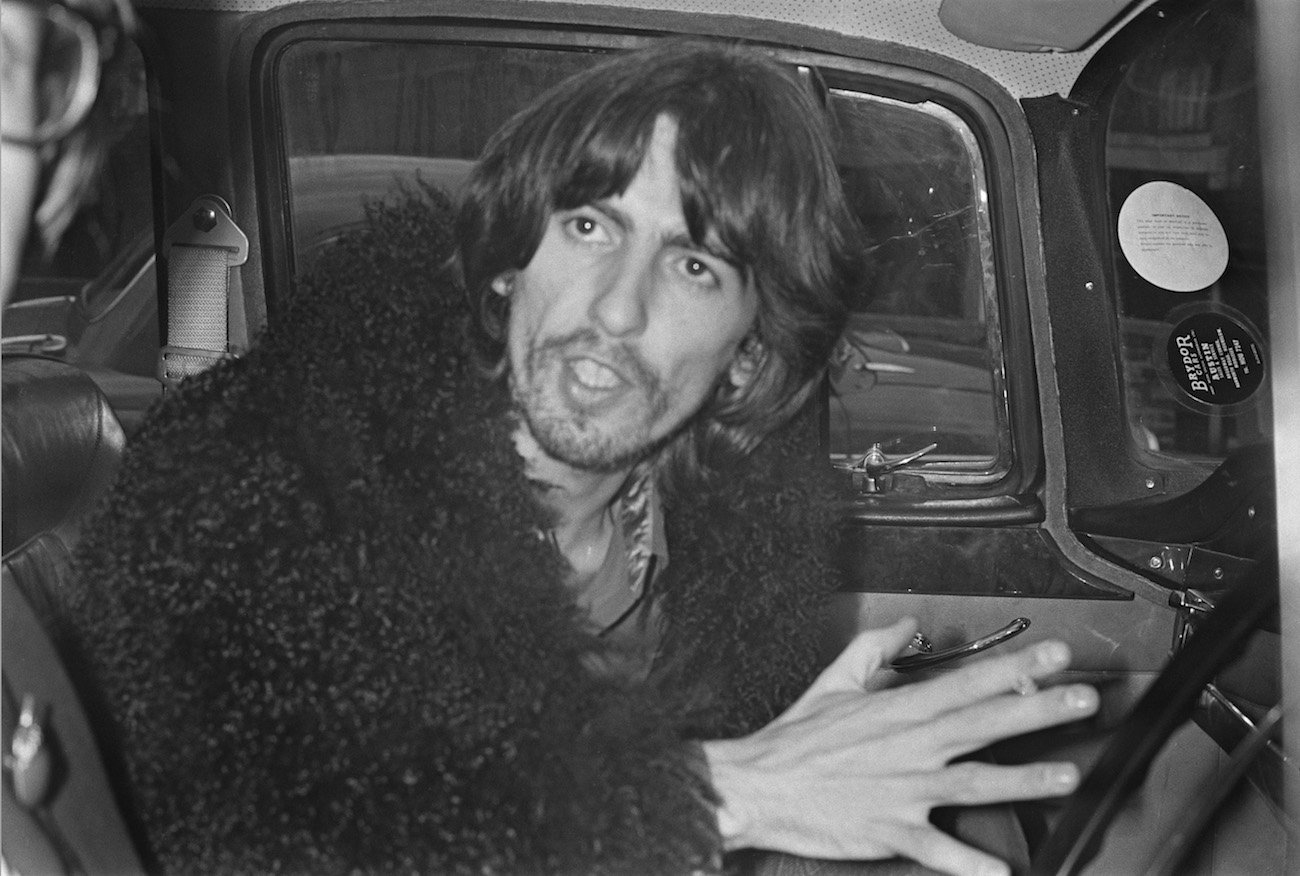
George Harrison Said the Rumors in Beatles Fan Magazines Drove Him up a Wall
George Harrison said the rumors in Beatles fan magazines drove him up a wall. However, the rumors the press and some authors concocted were even worse.
George had a hard enough time being a Beatle and struggled with fame. So those tall tales only aggravated him even more.

George Harrison said the rumors in Beatles fan magazines drove him up a wall
In the early 1960s, Larry Kane spoke with George about Beatles fan magazines (per George Harrison on George Harrison: Interviews and Encounters). The radio DJ asked if the rumors bugged him. They did.
“It drives you up a wall sometimes,” George replied. “Since we’ve been over here they’ve been asking us, ‘Is John leaving?’ Well, the new one today is it’s me leaving. You know, that’s just because some idiot in Hollywood has written in the papers that I’m leaving, so now I will have for weeks people coming up time after time and asking, ‘Is it true you are leaving?'”
That was early in The Beatles’ careers too. Imagine how tiring the rumors got toward the end of the band’s life and beyond.
In Peter Jackson’s three-part documentary, The Beatles: Get Back, in which fans got to see unseen footage taken during the filming of Let It Be, George reads a couple of Beatles fan magazines. He comments on their rumors. By 1969, George made the stupid lies into jokes.
Early in Part 1, George reads a line in the magazine that says, “What do you think of George’s pseudo tie sweatshirt?” He replies to the magazine’s question, saying, “I think it’s terrible.”
George didn’t like the rumors that the press made up either
The press’ rumors were just as bad, if not worse than the fan magazine’s. Initially, in the early days, the press stereotyped each musician. John Lennon was the witty one, Paul McCartney the cute one, George the quiet one, and Ringo Starr was, well, Ringo Starr. However, they weren’t accurate descriptions of the band.
Quickly, George became disenchanted with fame and craved privacy during the thick of Beatlemania, but the press didn’t allow it. When The Beatles’ press agent scheduled more interviews for him, George threw orange juice in his face.
Later, in Part 2 of Jackson’s documentary, John reads an account of George’s court appearance following his assault on a French photographer. They joked about it. Then, Paul dramatically read an article, “The End of a Beautiful Friendship” by Michael Housego.
An article excerpt read: “The awful tension of being locked up in each other’s lives snapped the other night at a TV rehearsal and Beatles John and George swung, at very least, a few vicious phrases at each other.”
Paul continues reading that The Beatles had developed “rust” and would “never be exactly the same again.”
Even after The Beatles broke up, the press didn’t leave George alone. He retreated from the spotlight because he hated the stories they spun about him.
According to NBC, George once said, “The press are such dummies, generally speaking… There are some great writers that do a useful job. But the whole thing is to sell a paper with some stupid headline. My image comes across like I’m some weird old mystical ex-Beatle.”
George maintained that he wasn’t a recluse like the press painted him; he just didn’t go where they were. He hated that they made rumors about him and Paul’s relationship. George even wrote a song about the dangers of rumors and gossip called “Devil’s Radio.”
The rumors in Beatles books were just as bad
Along with fan magazines and newspapers, Beatles books were just as untruthful. In 1987, George told Charles Bermant (per George Harrison on George Harrison) that most authors wrote Beatles books out of malice.
Bermant asked, “If I had read every Beatles book and seen every documentary, in a general sense, what would I have missed?”
“A lot of the stuff in the books are [sic] wrong,” George said. “A lot of them are written out of malice, or from people with axes to grind for one reason or another. And they’ve perverted certain things for their own gain.
“Not many are actually factual and honest. There is a saying in the old house that I have, it’s in Latin, translated it says, ‘Those who tell all they have to tell tell more than they know.’ So you probably know more about the Beatles from reading those books than there actually was.”
On what people miss, George said, “Well, there’s that expression, you don’t see the forest for the trees. Basically, the Beatles phenomenon was bigger than life. The reality was that we were just four people as much caught up in what was happening at that period of time as anybody else.”
Besides print, many Beatles films, documentaries, and even musicals tried to tell The Beatles’ story but lied or fabricated things for their own gain. George hated the lies that turned into rumors, and rightfully so.


